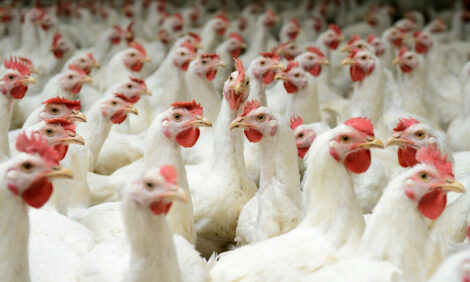



Chlorine Ban Pushes up Russian Poultry Meat Prices
RUSSIA - Since the ban on chlorine in poultry processing plants came into effect on 1 January, poultry meat prices are reported to have risen dramatically.Russian poultry prices have risen as much as 20 per cent since health officials banned US imports on 1 January, raising concern among domestic producers that they will be unable to meet demand.
According to Moscow Times, wholesale prices have reached about 70 rubles (RUB; $2.36) per kilo, from about RUB58 at the end of December, said Yevgeny Kogan, chairman of the Food Trade Group, which supplies meat and produce to supermarkets.
On 30 December 2009, Russia slashed the allowable chlorine limit on imported poultry to 50 milligrams per kilogram from 200 milligrams starting 1 January. In effect, this move banned chicken meat from the United States, where chlorine is the primary disinfectant. Russia is the largest export market for US poultry producers, which had about 22 per cent of the market last year.
Mr Kogen said: "This price growth isn't good. Poultry used to be the cheapest protein in Russia, consumed mostly by low-income individuals. So any price increase might be harmful for sales volumes."
Russia consumed some 3.5 million tons of poultry in 2009, about 900,000 of which was imported, mostly from the US, according to the Association of Russian Poultry Market Operators.
The group's head, Andrei Teriokhin, said: "The US may end up supplying nothing this year because of the ban."
US food officials will fly to Moscow next week to discuss the ban, reports Moscow Times.
Further Reading
| - | Go to our previous news item on this story by clicking here. |








